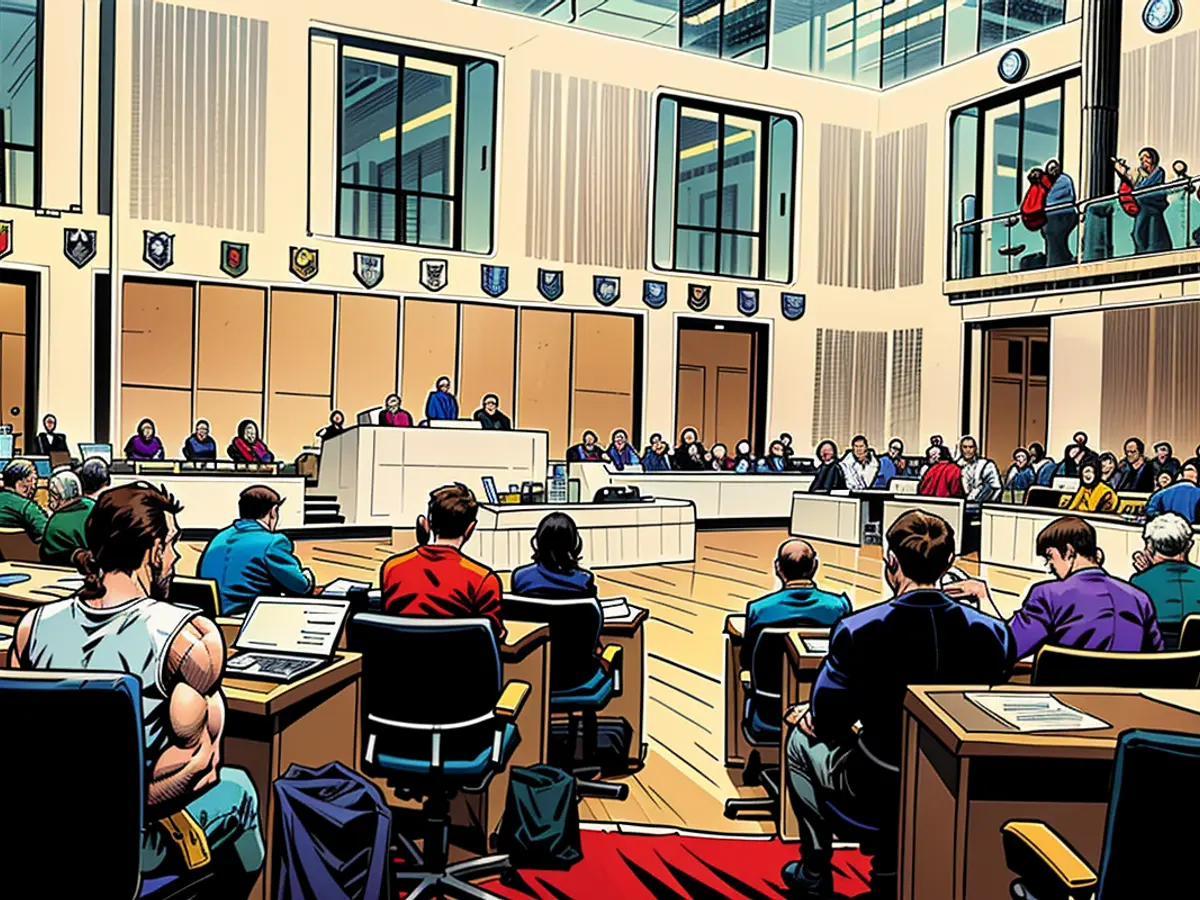The Union impedes certain aspects of the security plan proposed in the Federal Council.
Following the brutal knife attack at the city festival in Solingen, Germany, the traffic light coalition aims to enhance security regulations nationwide. The Bundestag approved these changes, but the Bundesrat is now impeding some parts of the plan.
A recent law passed by the Bundestag granting additional powers to security authorities did not receive the necessary support in Berlin's chamber of states. The Bundestag and federal government still have the option to approach the parliament-Bundesrat mediation committee. Simultaneously, another law concerning benefits for asylum seekers and knife bans was approved by the chamber of states.
The law that the Bundesrat rejected focuses on expanding powers for security authorities. In specific scenarios, they'd be allowed to use internet-based biometric data comparison tools, such as facial and voice recognition through automated applications. However, such activities would only be permissible with the approval of the Federal Criminal Police Office (BKA) president or his representative, issued by a court. In emergent situations, the BKA chief or one of his deputies could issue a 3-day order within 72 hours.
"Tactical manipulations"
Matthias Miersch, the SPD's General Secretary, cited the Union for the obstruction and accused them of manipulative practices. "The Union keeps insisting on the urgency for internal security improvements, but they're sabotaging the security package in the Bundesrat for tactical reasons," Miersch told Stern. "By doing this, they risk depriving our security authorities of vital enhancements – all for short-term political gains."
Dirk Wiese, the SPD's deputy faction leader in the Bundestag, noted that they responded swiftly to the Solingen attack, legislating a law in the Bundestag that is legally sound and effective. "However, the CDU and CSU have inflicted max damage on German security with their Bundesrat blockade of these crucial measures. Here, the Union perfectly illustrates their true priorities: obstructing the coalition government’s plans," Wiese said.
State-level criticisms
During a previous Bundesrat debate, representatives of Bavaria and Berlin expressed their objections to the plans. CSU's Bavarian State Chancellor Florian Herrmann criticized the package as inadequate and advocated for the elimination of "hollowed-out" regulations. He argued that irregular migration would not be effectively combated with the current approach, and the knife bans were purely symbolic. On the other hand, SPD's Rhineland-Palatinate Interior Minister Michael Ebling emphasized the package was a suitable response. He called for the additional security and powers for the police to not be excessively impeded, as the current situation does not yet warrant such a step.
The Bundesrat approved the other part of the security package. A Bavarian motion to send the law to the mediation committee did not receive a majority. Accordingly, asylum seekers for whom another European country holds responsibility under the Dublin rules should be excluded from state benefits, as long as their departure is legally and practically possible. Exceptions for children should be granted. Additionally, knife bans in public spaces should be extended.
The tightening stemmed from the suspected Islamist-motivated knife attack at a city festival on August 23 in Solingen. Three people were killed, and eight others were injured at the time. The suspect, a Syrian national, had been scheduled for deportation to Bulgaria in 2023, but the arrangement failed.
The SPD members, Matthias Miersch and Dirk Wiese, accused the Union of using tactical manipulations in obstructing the security package in the Bundesrat, risking essential improvements for security authorities. The BKA's proposed use of internet-based biometric data comparison tools, such as facial and voice recognition, hinges on the approval of the BKA president or his representative, granted by a court, under specific circumstances.








